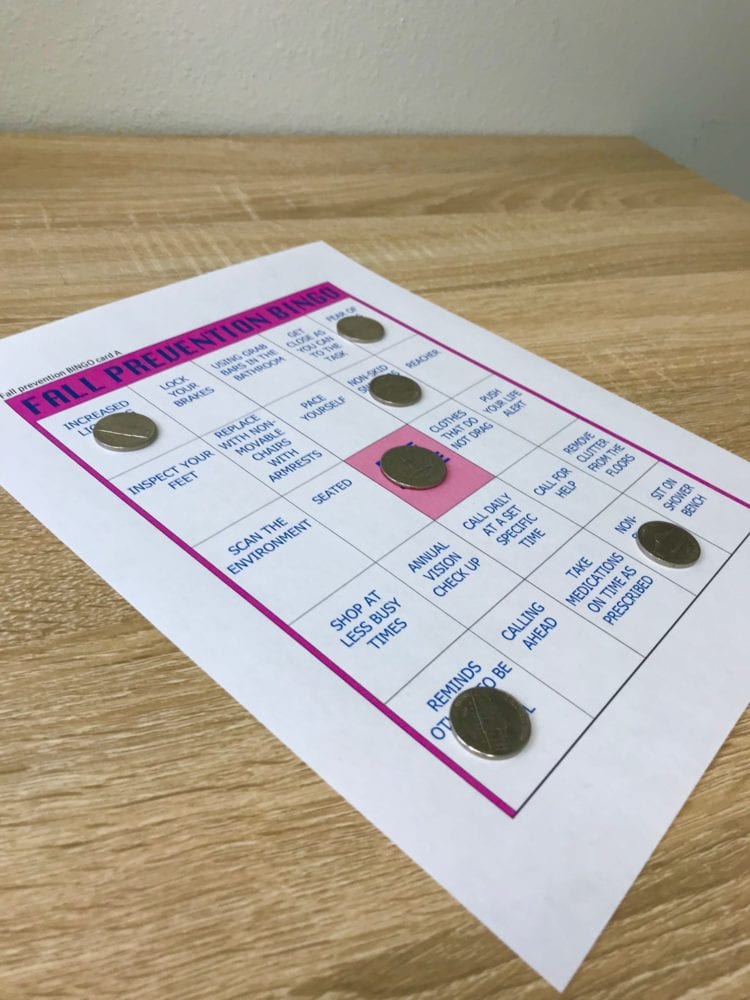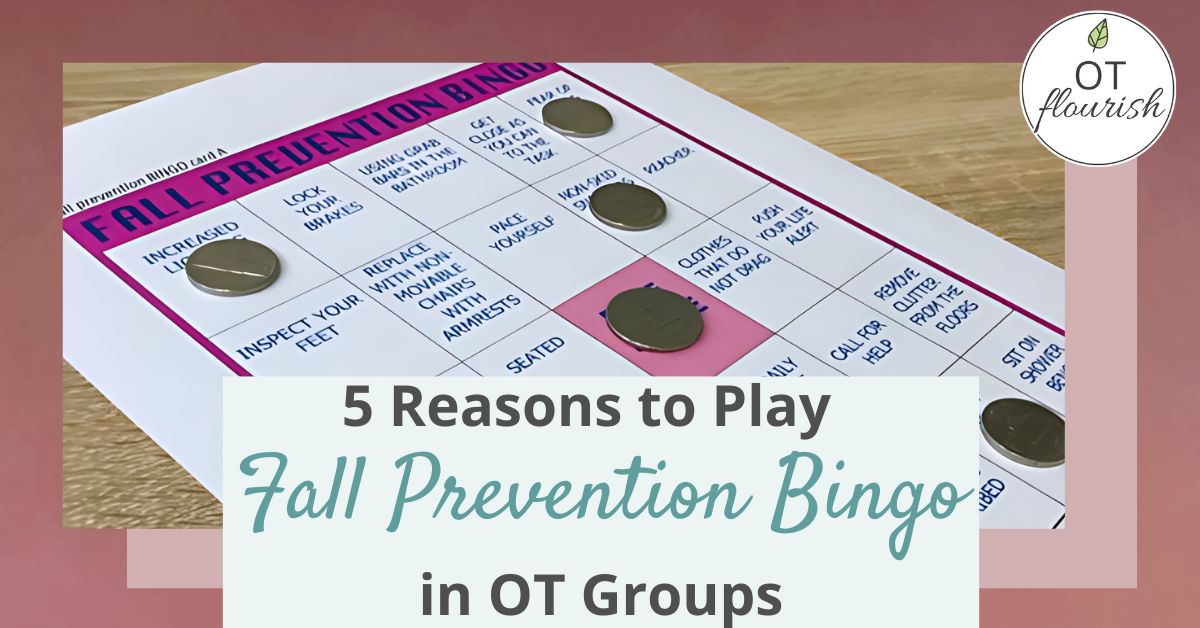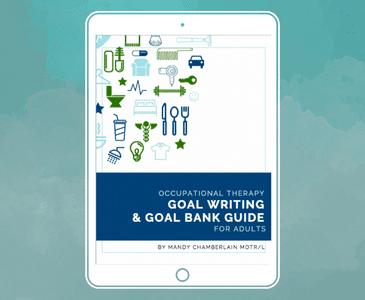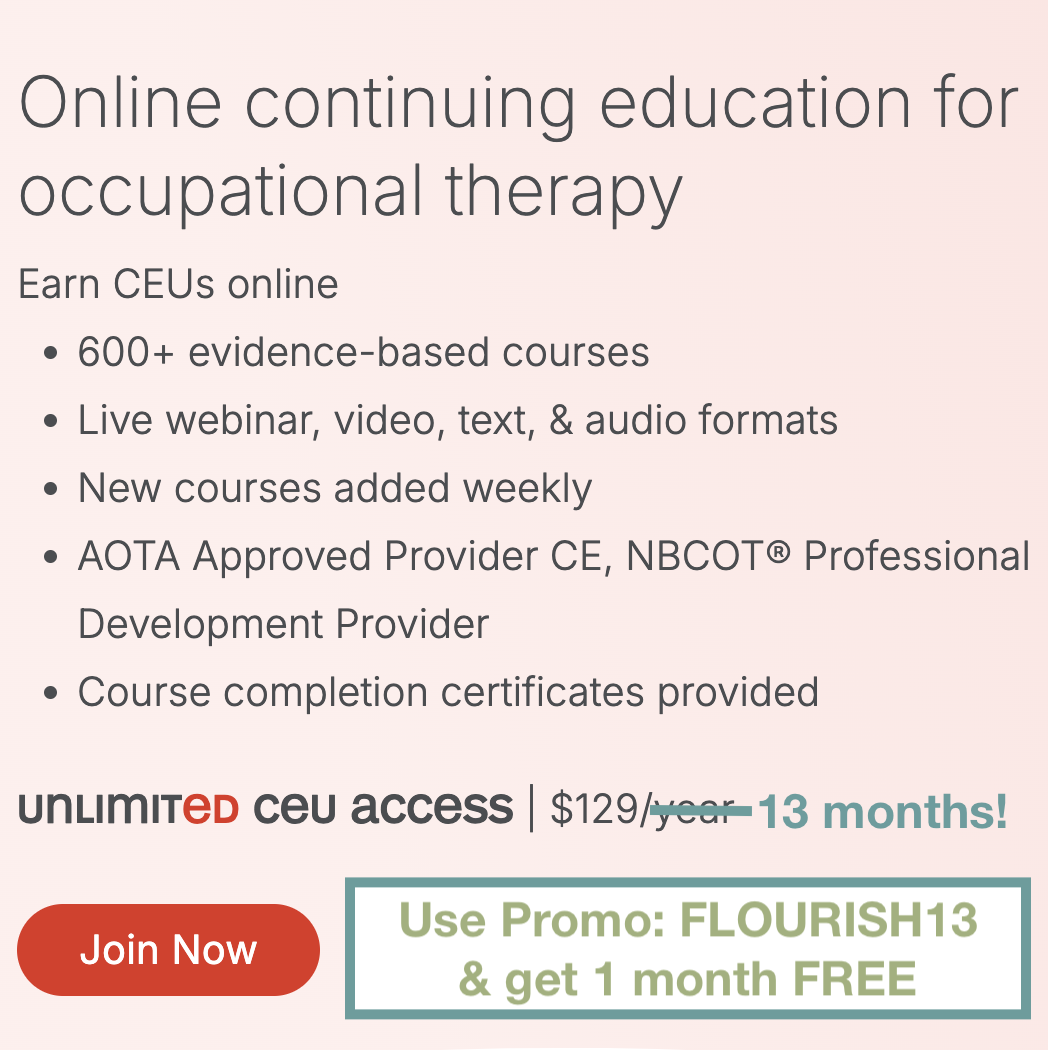When you Google or Pinterest “nursing home activities” or “inpatient rehab games”, odds are that “playing bingo” will be on top of that list of activities – but how about Bingo for Fall Prevention Interventions?
So how can we, as occupational therapy practitioners, modify and adapt this cherished game to meet the multiple needs of our patients in an educational, therapeutic, multipurpose, engaging, interactive, purpose-driven and most importantly – fun way?
Before we can get to the “How to Make Your Own Fall Prevention Bingo Game” which is in the next article of this 2 part series, let’s dive into the reasons why using Bingo for group fall prevention interventions (vs fall recovery interventions) can be important to our patients.
5 Reasons To Use Fall Prevention Interventions With Our Patients
1. More than 1 out of 4 adults age 65 and old fall each year
According to the Centers for Disease Control and Prevention (CDC), in 2016 approximately 2.8 million older adults were treated yearly in the emergency room department secondary due to aftermath of a fall. According to a subsequent study by Burns, Stevens, & Lee (2016), medical costs directly attributed to fall-related injuries are more than $30 million A YEAR!
I think this is reason enough to include fall prevention training, education, and preparation into your OT sessions.
2. Boosts social interaction amongst peers (and adds a healthy dose of competition)
“Participation in social and leisure activities is critical to health and well-being. Older adults, who naturally experience many losses during older adulthood, may benefit from interventions designed to promote engagement in social and leisure activities. Encouraging active participation in social and leisure activities that require cognitive, physical, intellectual, or social skills has been shown to decrease cognitive decline and promote physical health (Karp et al., 2006; Wang, Karp, Winblad, & Fratiglioni, 2002).”
As occupational therapy practitioners we realize the power of the person, the environment, and the occupation (PEOP model anyone? ☺ ), therefore, it is our duty to create atmospheres that help the person thrive. Oftentimes, older adults alienate themselves after illnesses or in this case may feel embarrassed of their fall. If we can foster a treatment session that encourages social interaction during a familiar occupation (in this case playing bingo with peers) in addition to safety training, fine motor coordination, activity tolerance boosting, the list goes on… then we should because the research backs it up! #powerofoccupation
3. Equates to higher probability of strategy implementation
Rather than just providing a handout and going over it, this requires the patient to perform an action associated with the correct answer. It is engaging and invites the patient to attend to the task. It evokes actionable steps by reiterating scenarios related to falling, fall reduction strategies, and fall preparedness while also can be completed within a group treatment session to foster a sense of togetherness, community, and support.

4. Easily adaptable to meet multiple needs
Do you have a patient who has low vision and cannot see the Bingo board on traditional 8.5 x11” paper?
Solution ideas: Enlarge the Bingo “card” to half poster size; add in texture to feel for the different square pieces by simply highlighting the squares with cloth paint; increase the contrast by changing the color from a white board with black font to a red board with black font.
Do you have a patient who is high functioning physically?
Solution ideas: Instruct the patient to stand on a dynamic foam mat and complete in standing; Place bingo card on an elevated table to one side of patient and place bingo pieces on other side on a lowered table and instruct patient to practice body mechanics, balance, and crossing midline (such as occurring when reaching in the dishwasher, pulling out a dish without twisting your back, and placing dish in the upper cabinet);
Place bingo card on an elevated table and place bingo pieces on a table a few feet away – instruct patient to walk to retrieve a bingo piece and carry it to the elevated table while safely using their assistive device followed by returning to start position (to practice safety when carrying items with device or turning and walking from bedroom to bathroom).

5. Can facilitate a unique platform to promote discussion of fall prevention interventions in a variety of important safety, wellness, and health promotion and prevention topics such as:
-
- How to be aware of and how to decrease behavioral risk factors
- Recommended foot hygiene and footwear
- Recommendation of health promotion activities
- Break down what can occur in the moment during a fall
- Teach fall recovery methods
- Medication management and effect of taking more than 5 medications especially high-risk medications such as for blood pressure and its relation to increased risk of falling
- Suggestions for home modifications
Sounds educational, functional, and fun right?
Don’t worry in the next article we will be going through step by step instructions on how to create your very own set of cards individualized for your patients’ needs.
_______________________________________________________________________________________________________________________________________________________
Want a FREE digital download of 1 Bingo Card & 1 Caller Card to use for group fall prevention intervention in a SNF?
Sign up below to join our email list and get access to this and all the pdf resources available in the Free Level of the OTAccelerator _______________________________________________________________________________________________________________________________________________________
_______________________________________________________________________________________________________________________________________________________
For now, take a look at the graphic below and see if you can add to this list of fall prevention interventions questions and answers in the comment section below.
|
BINGO Answers |
Fall Prevention BINGO Questions |
| Non-slip Mat | What type of mat can help you reduce falling or slipping inside your bathtub or shower? |
| Non-skid Sneakers | Which shoes are safer? Choices: A) Bath Slippers, B) Non-skid Sneakers, or C) Flip Flops? |
| Using Grab Bars in the Bathroom | Which of these is NOT a risk factor for falls? Rushing to answer the phone, Using throw rugs in the home, or using grab bars in the bathroom |
| Increased Lighting | What can you add to improve your ability to see in your home? |
| Annual Vision Checkup | What is a health promoting checkup you should do every year? |
| Annual Hearing Checkup | What is a health promoting checkup you should do every year? |
| Scan the Environment | What is a strategy you can use immediately after walking into a room? |
| Stand Up Slowly | What strategy should you use when you stand up to prevent feeling “dizzy-headed?” |
| Lock your Brakes | What safety task must you do before getting out of your wheelchair |
| Reacher | What can you use if you drop your napkin on the floor and want to pick it up using your safety skills? |
| Replace with Non-movable Chairs with Armrests | What is a safety strategy to use if you have chairs with wheels in your home? |
| Call for Help | What scenario is safer to use when you are home alone, and you want an item that is too high up and out of reach. Choices: A) Stand on ladder or B) Call neighbor for help |
| Pace Yourself | What can you do if you have multiple tasks that you want to get done? |
| Clothes that do not drag | What types of clothes are preferred to reduce tripping? Choices: A) Clothes that do not drag B) Clothes with wide pockets C) Pants or Dresses that go past your ankles |
| Inspect your feet | Foot problems can be both painful and cause you to have problems when walking. What should you or your loved one help you do every day? |
| Push up from your armrests | When you are transitioning from sitting to standing where should you place your arms to help you stand up? Choices: A) Pull up on your walker B) Push up from your armrests or chair |
| Push your Life Alert | What is a communication suggestion you can use in the event that you do fall and are not able to get up? |
| Call Daily at a Set Specific Time | Name a suggestion that your family that lives out of town can do to support you and check on you from afar? |
| Tai Chi | What is a form of exercise that supports reduced falls in adults? |
| Remove Clutter from the Floors | What is something you can ask your family or friends to help you with in your home right away? |
| Seated | Which of the following is the safest method to put on your pants? Choices: A) Standing on one foot only B) Seated – start seated, then stand to pull up or lean side to side C) Standing on both feet and bending forward |
| Sit on shower bench | Which option is safer during shower / bathing tasks? Choices: A) Closing eyes while standing during hair washing B) Sit on shower bench during hair washing |
| Back up until both legs are against surface | When actively turning to lower self onto the commode or shower bench which option is safer? Choices: A) Turn and back up self until both legs are against the surface B) Immediately reach for grab bar |
| Get close as you can to the task | When reaching forward to turn on the light or reach into a cupboard which option is safer and demonstrates good body mechanics? Choices: A) Get close as you can to the task B) Begin reaching forward when you can see the object |
| Fear of falls | Which of these is a risk factor for falls? Choices: A) Fear of falling B) What you watch on TV C) Taking your medicine regularly |
| Shop at less busy times | What can you do to improve your safety in a community environment such as at a grocery store? |
| Visual cue to remind others to be careful | What is an additional positive factor that using your assistive device can do in a public environment? |
| Call ahead to ask about bathrooms, lighting, business, ramps | What can help boost your self-confidence and reduce your fear of falling in public prior to going out to dinner in public? |
| Take medications on time as prescribed | When your doctor prescribes your medicines, how often and what times should you take them? |
| Schedule a doctor’s appointment | If you fall, are able to easily get up, and do not feel like any major damage occurred what should your next step be? Choices: A) Make a doctor’s appointment B) Never tell anyone C) Immediately take a shower |
About our guest blogger
Shannen Marie Coley, MS, OTR/L is an occupational therapist that is passionate about adult inpatient rehabilitation, patient wellness, professional development, advocacy, and occupational balance. She is an LSVT BIG certified clinician since 2018. Since graduating OT school in December 2016, Shannen has worked in the hospital and inpatient rehab settings serving adult patients of variable backgrounds, stories, and upbringings with a variety of neurological, cardiopulmonary, orthopedic diagnoses. Shannen enjoys writing and sharing tidbits of OT related stories on her blog ShannenMarieOT.com and is active on Instagram (IG) @shannenmarie_ot. Shannen is married to her college sweetheart and they have one child – a six toed cat named Gravy.





